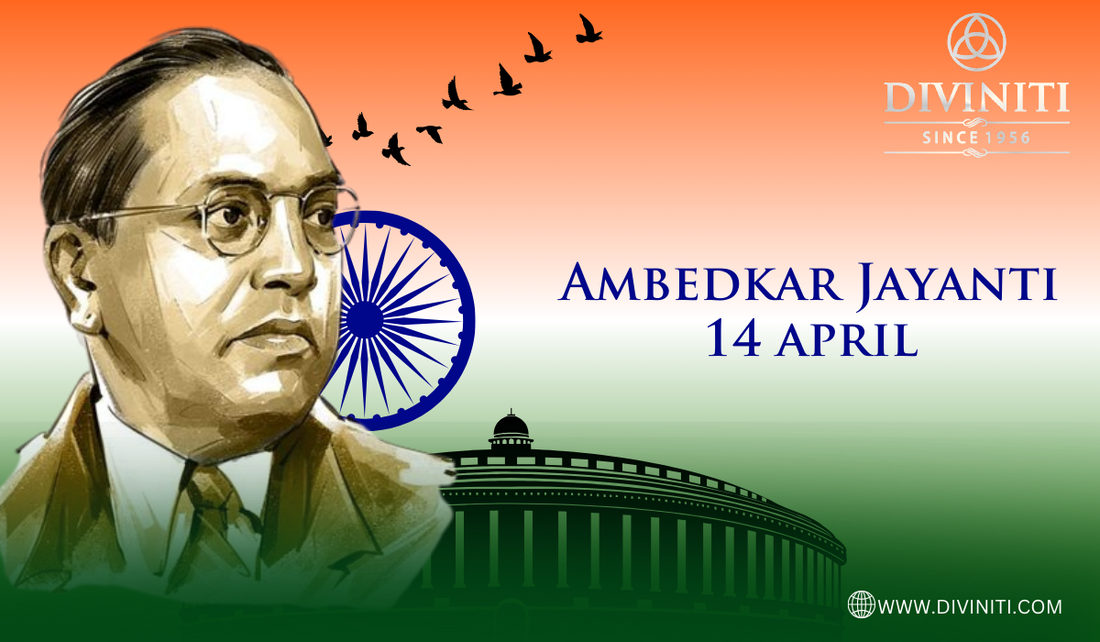
Ambedkar Jayanti 14 April : Honoring the Architect of Equality and Justice
Also Read About:- Hanuman Chalisa: Meaning || Which Hanuman Idol is best for Home || Panchmukhi Hanuman || Sri Ram Navami || Famous Ram Temples in India ||Chaitra Navratri 2025 ||What Not to Buy or Eat During Navratri ||Gudi padwa || Navreh 2025
Introduction
Every year on April 14, India and millions around the world commemorate Ambedkar Jayanti, the birth anniversary of Dr. Bhimrao Ramji Ambedkar. Known as the “Father of the Indian Constitution,” Ambedkar was a visionary leader, social reformer, and tireless advocate for equality. His legacy transcends borders, inspiring movements for justice, education, and human dignity. But why does this day resonate so deeply today? Let’s dive into the life, contributions, and enduring relevance of Dr. B.R. Ambedkar.
The Boy Who Defied the Odds: Ambedkar’s Early Life
Born into a Dalit family in 1891, Ambedkar faced intense caste discrimination.
Despite being barred from basic rights like education and public water access, he rose through the ranks with sheer determination.
Education Against All Odds
Ambedkar became one of the first Dalits to study abroad, earning degrees from Columbia University and the London School of Economics.
A Voice for the Voiceless
His powerful slogan — “Educate, Agitate, Organize” — became a rallying cry for social reform across India.
History of Ambedkar Jayanti Celebrations
The celebration of Bhimrao Ambedkar Jayanti has grown over time — from small gatherings to a day observed across the country. Here's how it developed:
1928: First Celebration
The first public celebration of Dr. B.R. Ambedkar’s birthday was organized by social activist Janardan Sadashiv Ranapisay in Pune on April 14, 1928. This event started the tradition of honoring Ambedkar every year.
1940s–1980s: Gaining Popularity
During these years, as Ambedkar became more respected, more people started celebrating his birth anniversary. However, it was still not a national-level event.
1990s: More People Join In
In 1990, Dr. Ambedkar was given the Bharat Ratna (India’s highest civilian award). Also, 1990–91 was named the “Year of Social Justice.” These steps led to more states unofficially treating his birthday as a holiday.
2020s: National Recognition
In recent years, the Central Government has started recognizing the day. While there is no official national holiday announced, most government offices now observe April 14 as a holiday.
Why We Celebrate Ambedkar Jayanti
-
Spreads Ambedkar’s vision of unity and harmony.
-
Sparks community upliftment projects and social awareness campaigns.
-
Inspires people to fight for equal rights and justice.
-
Highlights the importance of education for all, especially marginalized communities.
-
Reinforces the constitutional values of equality and freedom.
-
Encourages renewed commitment to human rights and inclusive growth.
Architect of Modern India: Ambedkar’s Monumental Contributions
1. Drafting the Indian Constitution
As Chair of the Drafting Committee, Ambedkar made sure the Constitution reflected principles of:
-
Liberty, Equality, Fraternity
-
Abolition of Untouchability (Article 17)
-
Reservations for SC/STs
-
Gender equality and labor protections
2. Champion of Social Justice
-
Founded the Bahishkrit Hitakarini Sabha for Dalit empowerment
-
Led the Mahad Satyagraha for water rights
-
Wrote Annihilation of Caste, critiquing caste hierarchy
3. Economic Visionary
-
Advocated land reforms and women’s labor rights
-
Proposed a central bank and economic planning framework
-
Foresaw challenges still debated today
Ambedkar Jayanti Celebrations: From Statues to Social Media
-
Processions & Cultural Programs: Plays, speeches, and community events
-
Statue Garlandings: Paying tribute to Ambedkar’s memory
-
Online Campaigns: Hashtags like #AmbedkarJayanti go viral
Why Ambedkar’s Legacy Is More Relevant Than Ever
Fighting Persistent Inequalities
From caste violence to educational gaps, many issues Ambedkar fought against are still present today.
Education as Empowerment
His belief that knowledge could break oppression is especially powerful for today’s youth.
Intersectional Thinking
He linked caste, gender, and class — concepts that drive modern movements.
Global Inspiration
Ambedkar’s message resonates beyond India — influencing movements like Black Lives Matter and Dalit rights campaigns abroad.
“Ambedkar is not just an Indian icon — he’s a global symbol of resistance.” – Suraj Yengde
Conclusion: Carrying Ambedkar’s Torch Forward
Ambedkar Jayanti is not just a tribute — it’s a call to action. In a world still battling inequality, Ambedkar’s ideas remain powerful tools for change. Let’s celebrate his life by building a nation that truly lives by his words:
“Liberty, Equality, and Fraternity” – Dr. B.R. Ambedkar
“I measure the progress of a community by the degree of progress which women have achieved.” – Dr. B.R. Ambedkar
FAQ's
Q1. Why is Ambedkar called the ‘Father of the Indian Constitution’?
He chaired the drafting committee and shaped the Constitution’s foundation for equality and justice.
Q2. How is the day celebrated across India?
-
Maharashtra: Grand rallies and cultural programs
-
Uttar Pradesh: Seminars and policy discussions
-
Karnataka: Community meals for social harmony
Q3. What was his role in women's rights?
He pushed for the Hindu Code Bill granting women equal rights in inheritance, divorce, and property.
Q4. Why did Ambedkar convert to Buddhism?
In 1956, he embraced Buddhism as a religion of equality and peace, rejecting caste-based Hinduism.
Q5. Must-read books by Ambedkar?
- Annihilation of Caste
-
The Problem of the Rupee
-
Who Were the Shudras?
Q6. How can youth connect with Ambedkar’s ideals?
By advocating for equality, supporting Dalit-owned businesses, and educating others on social justice.
